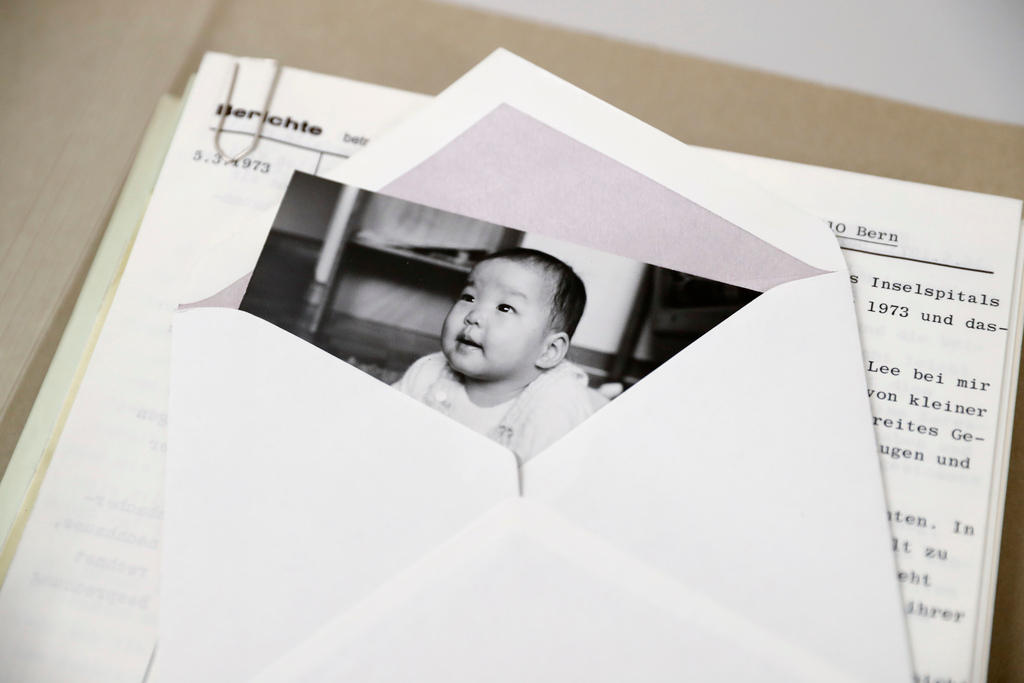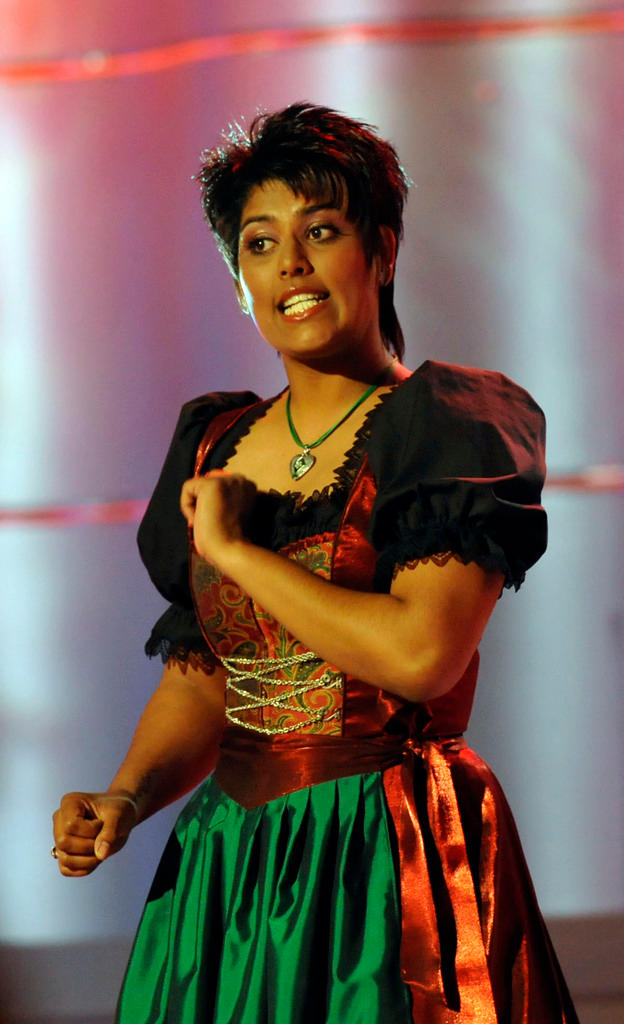
Is adoption in Switzerland on its way out?

The boom days of adopting children from abroad are over – nowadays hardly anyone is adopting in Switzerland. There are several reasons for this.
The airplane was full of children, Elena, Tom and Rhea (all names changed) can recall it clearly. But Myra was too small to remember. All four were adopted by Swiss parents in the 1970s. Their own parents could not or did not want to care for them anymore.
Around 1,200 children from South Korea were adopted in Switzerland during this time. Many of them still meet up at the Dongari associationExternal link, where they can talk freely about their experiences. Members Elena, Tom, Rhea and Myra have agreed to speak about their adoptions to swissinfo.ch.
Although they have been through a lot, they can still have a laugh together – such as over their experiences of South Korea. “I am not that fond of Koreans,” said Myra. “I am Swiss and express my opinion. Koreans mostly don’t. And all this macho behaviour….” The others laugh and seem to know what Myra is talking about. Rhea confirms, “as a woman you are not really taken seriously by men”.
The association was founded in the wake of tragedy – there was a series of suicides among people adopted from South Korea within a short span of time. A Korean priest in Switzerland founded Dongari in 1994, following the fourth suicide. The association receives financial help from South Korea. “It’s obvious that they have a bad conscience about the adoptions,” Myra said. Instead of building up welfare for single mothers and poor families, the country focused on adoptions abroad, right into the 1980s.
Rich Swiss
South Korea was not the only source for adoptions: children were also adopted from India, Sri Lanka, Colombia, Romania, Russia, Ukraine and Ethiopia. International adoptions have been relatively high in recent years, said Eric Breitinger, a journalist who has written a book about adoptionExternal link and is himself adopted. “International adoption is expensive,” Breitinger said. The Swiss could afford to travel abroad and organize an adoption independently.

Breitinger says that foreign children are often better at coming to terms with being adopted than Swiss ones. They comprehend better why their birth parents gave them away: poverty being one reason. In addition, adoptive parents are less likely to be able to hide the fact that their child was adopted, simply because of their child’s looks. It used to be quite common in Switzerland to not tell a child about being adopted. This is no longer allowed.
Exotic looks can, however, also be a disadvantage. “Many Swiss have spoken broken high German to me thinking that I couldn’t speak Swiss German,” explained Elena. “I found that offensive.”
And during the “Thai wave” – when many Swiss men took wives back from Thailand – she was even sexually harassed in public. The situation has improved over time.
For Tom, it has been different. “I have never felt any discrimination,” he said. “Asians have a good reputation in Switzerland because they have the typical Swiss characteristics of punctuality, reliability and cleanliness.” His boyfriend, who comes from an African country, has had a tougher time though, he added.
Home over foreign adoptions
In the meantime, the hurdles for adopting from abroad have become a lot higher. The Hague ConventionExternal link, adopted by Switzerland in 2003, states that such adoptions can only take place if no parents can be found in the home country. This targets child trafficking in particular.
The number of adoptions overall in Switzerland have dropped over the years: in 1980 there were 1,583, falling to just 363 in 2016. This is despite many childless couples wanting to adopt. According to the Federal Statistical Office, the drop is due to changes to the law and the coming into force of the Hague Convention.
Breitinger welcomes the Hague Convention in principle, but doubts whether very poor, badly governed countries could really apply the full letter of the Convention in practice. “The key question is: what happens to the children? Are the authorities and institutions really taking good care of them or are they just putting them into a home?” he asks.
A similar view is taken by the Organisation of Foster and Adopted Children (known in German as PachExternal link). “We consider the Hague Convention to be a positive thing,” said Karin MeierhoferExternal link, who runs Pach. “As far as we know the Convention has really curbed child trafficking,” But we don’t really know how the children are being treated in their home countries, she said. “They probably end up in a badly run home for children.”
Time’s up for adoptions?
But the Hague Convention is not the only reason adoptions in Switzerland have fallen. There are hardly any children from Switzerland coming up for adoption as well. In German-speaking Switzerland, only 15 babies are adopted a year. The reason for this is a positive one: there are few mothers who find themselves in such desperate economic or social circumstances that they need to give up their child for adoption. Most cases concern very young mothers from a different cultural background, Pach says.
The authorities in charge of adoption in the Italian-speaking canton of Ticino say that in their case, most adoptions are of Swiss children and are not necessarily all hardship cases.
Meierhofer believes that the number of adoptions outside the family will fall further. “At the moment we see more flexibility in finding solutions,” she said. This could be fostering instead of adopting. “These days people focus more on what is best for the child,” she said, adding that this was real progress in terms of a child’s wellbeing.
What do the four Dongari members think about adoption possibly being on its way out? Elena says it’s important that children are adopted as babies and not aged six, as she was. Myra thinks fostering is better than adoption because parents have less of a claim of ownership. Tom adds that adoption only works in a few cases. “In many cases it involves many challenges,” he said.
Contact the author @SibillaBondolfi on FacebookExternal link or TwitterExternal link.
Translated from German by Isobel Leybold-Johnson

In compliance with the JTI standards
More: SWI swissinfo.ch certified by the Journalism Trust Initiative































You can find an overview of ongoing debates with our journalists here . Please join us!
If you want to start a conversation about a topic raised in this article or want to report factual errors, email us at english@swissinfo.ch.